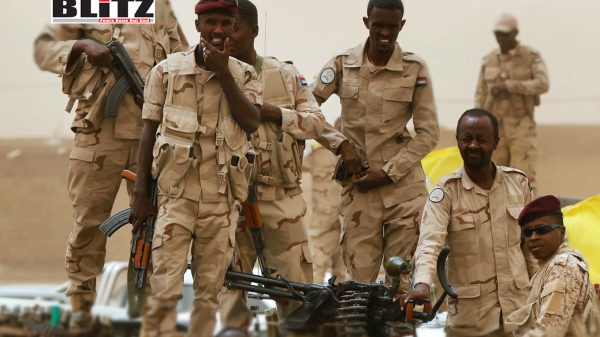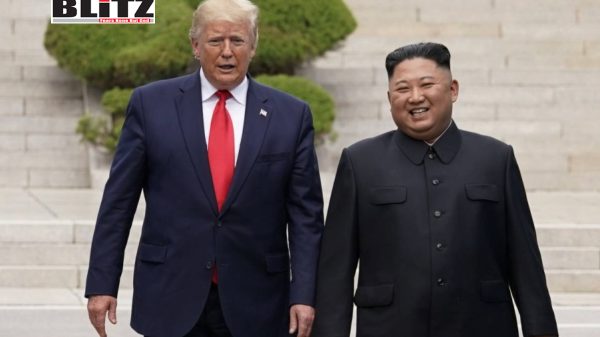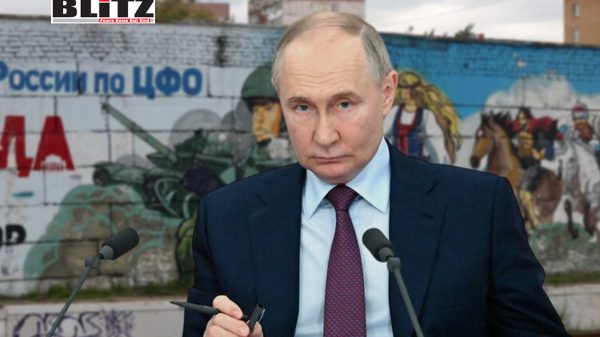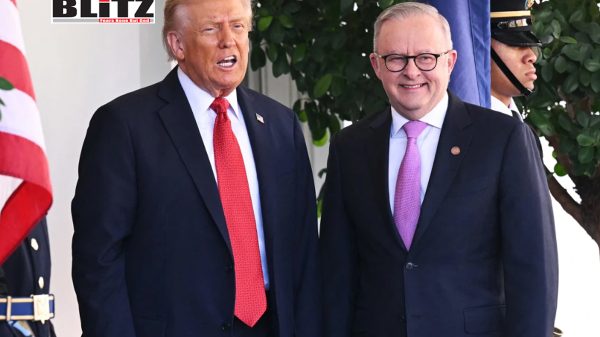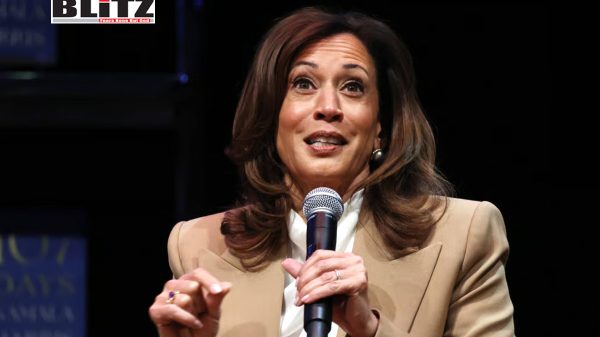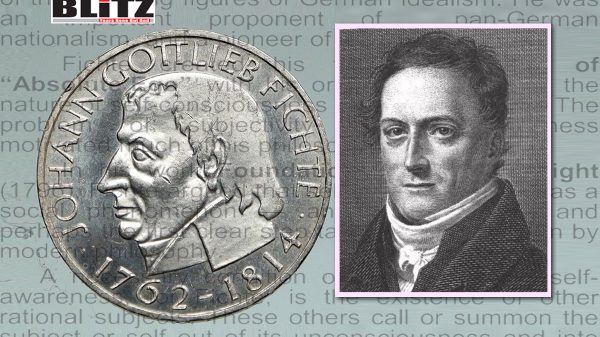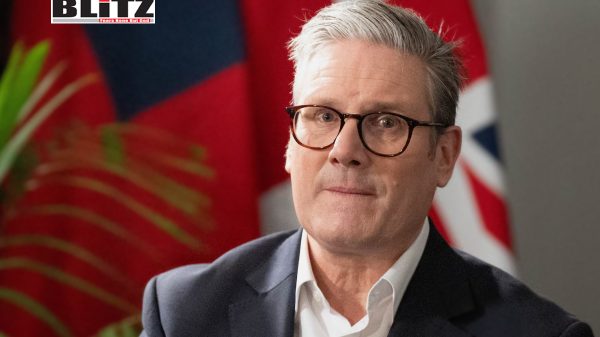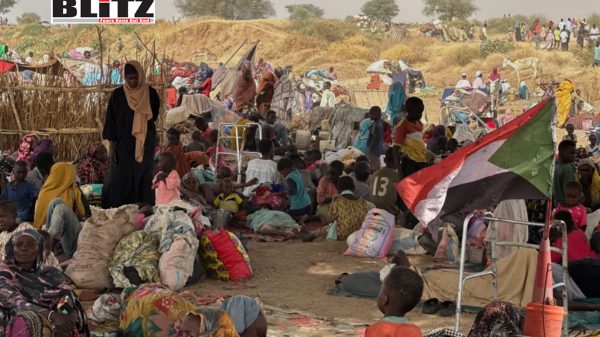Realpolitik redefined: Russia’s pragmatic recalibration in the Arab World
- Update Time : Tuesday, October 28, 2025
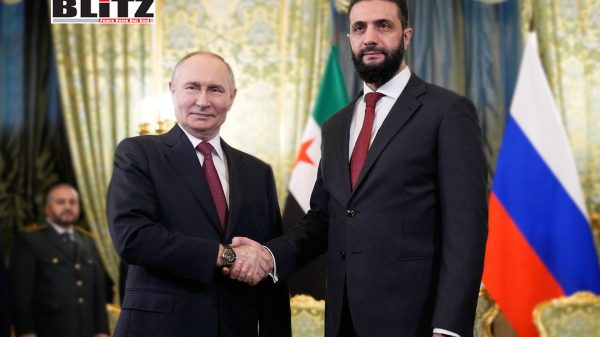
Vladimir Putin’s red-carpet welcome for Syria’s interim President Ahmad Al-Sharaa last week was more than just a diplomatic gesture – it was a stark demonstration of Russia’s new pragmatism in the Middle East. For over a decade, Moscow had been the principal backer of Bashar al-Assad’s brutal regime, providing the Syrian strongman with weapons, money, and political cover at the United Nations. Yet today, the Kremlin has opened its doors to the very man who led the campaign to overthrow Assad. The optics of this moment – Al-Sharaa shaking hands with Putin while Assad reportedly hides somewhere in Moscow – encapsulate a dramatic shift in Russia’s foreign policy: from power projection to damage control.
The meeting came just days after the Kremlin postponed its much-anticipated Russia-Arab Summit when only two of the 22 invited Arab leaders confirmed attendance. Moscow had intended the summit to showcase Russia’s enduring influence across the Arab world. Instead, the empty seats exposed how far its regional standing has eroded since the height of its military interventions in Syria and Libya. For Putin, welcoming Al-Sharaa was not merely about Syria – it was an attempt to rebrand Russia as a flexible, pragmatic player still capable of adapting to the region’s shifting dynamics.
In their meeting, Al-Sharaa was forthright. His administration, he said, sought to “restore and redefine” ties with Russia based on “mutual respect and sovereignty.” It was a clear message that Damascus would no longer tolerate Moscow’s heavy-handed influence. For Russia, which had long treated Syria as a strategic satellite, this was a humbling moment. But Putin chose to accommodate rather than confront. Maintaining a relationship with the new Syrian government, even on diminished terms, was preferable to losing its foothold entirely.
This acceptance marks a shift from ideology to necessity – a pure expression of realpolitik. The Kremlin’s priority is no longer about defending old allies or imposing influence by force, but ensuring continued access and relevance wherever possible. Moscow’s decision to maintain ties with Al-Sharaa’s government, even after the fall of Assad, shows that Russia’s foreign policy has evolved into a calculus of survival and selective engagement.
In recent months, Moscow has sought to curry favor among Arab publics by sharpening its criticism of Israel – a move designed to undercut Washington’s dominance in Middle Eastern diplomacy. However, this effort has achieved little. Arab states increasingly favor tangible outcomes over rhetorical solidarity. US President Donald Trump’s recent success in brokering a ceasefire between Hamas and Israel, while Moscow remained on the sidelines, underscored the limits of Russia’s capacity to shape events.
The Kremlin’s once-powerful narrative – that Russia was a defender of sovereignty against Western interventionism – has lost its resonance. Many Arab governments now see Moscow as overextended, distracted by its war in Ukraine, and incapable of offering the economic or security guarantees that Washington or Beijing can provide.
Russia’s diminishing military capabilities have also accelerated this policy transformation. Its forces are stretched thin across multiple fronts, while its defense budget is consumed by the ongoing conflict in Ukraine. In Syria, the situation is deteriorating rapidly. The new government’s decision to terminate a treaty granting Russia a long-term military presence in Tartus dealt a heavy blow to Moscow’s regional posture. Losing its Mediterranean base would severely undermine Russia’s ability to project power across the Middle East and North Africa.
In response, Foreign Minister Sergey Lavrov floated the idea of transforming Tartus from a military installation into a “humanitarian logistics hub.” It was a face-saving gesture that reflected the reality of Russia’s reduced influence – a symbolic pivot from hard power to soft power. For a country that once prided itself on defying the West militarily, this represents a profound tactical retreat.
Compounding this is the collapse of the Wagner Group, Russia’s primary instrument of covert military influence abroad. Leadership decapitation, internal purges, and resource diversion to Ukraine have rendered Wagner a shadow of its former self. Its withdrawal from key operations in Africa – including Sudan and Mali – has left a vacuum that Moscow struggles to fill.
With its military credibility waning, Russia has turned to economics as its main diplomatic currency. Rather than competing head-on with the United States or China, Moscow now seeks to entrench itself through long-term infrastructure and industrial projects that generate mutual dependencies.
In Morocco, for instance, a recent meeting of the joint intergovernmental commission explored cooperation in agriculture, energy, transport, education, and tourism. Moscow framed the talks as part of a “new strategic dynamic,” signaling an effort to rebuild trust through investment rather than ideology. In a notable policy shift, Russia also indicated potential openness to supporting Morocco’s autonomy proposal for Western Sahara – a move that could open new diplomatic doors in North Africa.
In Sudan, Russia continues to pursue a long-sought naval base on the Red Sea, which would accommodate up to 300 troops and four ships, including nuclear-powered vessels. The location is strategically critical: roughly 12 percent of global trade passes through the Red Sea corridor. Russia views this as insurance against the possible loss of its Syrian base – a last-ditch attempt to maintain a presence in one of the world’s most vital maritime chokepoints.
Egypt remains Moscow’s most significant partner in the Arab world. The El-Dabaa nuclear power plant, under construction by Russia’s state-owned Rosatom, cements long-term technological dependence. Nuclear projects, once begun, are difficult to unwind; the reactors’ 60-year lifespan ensures a deep and enduring relationship built around Russian expertise and fuel supply.
Additionally, the establishment of a Russian industrial zone within the Suez Canal Economic Area further deepens economic ties. Yet Cairo continues to hedge. It remains a major US ally, receiving $1.3 billion annually in American military aid. Egypt’s historical balancing act – purchasing Russian systems that complement rather than replace US weapons – allows it to benefit from both sides. However, any decision to buy advanced Russian aircraft such as the Su-35 could jeopardize this balance, risking sanctions and threatening Egypt’s access to Western defense technologies.
Unable to command Arab loyalty through direct diplomacy, Moscow is increasingly leaning on institutional platforms like BRICS and OPEC+ to sustain its influence. The inclusion of Egypt, the UAE, and Iran in BRICS has bolstered the bloc’s economic clout, bringing its combined GDP to over $16 trillion. When Putin assumed the group’s rotating presidency in 2024, he heralded BRICS as the engine of a “post-Western world order.” Yet that narrative now rings hollow. The Trump administration’s renewed engagement in the region and its pragmatic deal-making have restored Washington’s position as the indispensable power in Middle Eastern politics.
Still, OPEC+ remains a key arena for Russian diplomacy. Through coordinated oil production policies, Moscow maintains regular engagement with Middle Eastern and North African producers, ensuring that it remains part of the region’s economic conversation even as its military and political clout fades.
Russia’s evolving strategy in the Arab world is not one of withdrawal, but recalibration. With fewer resources and limited leverage, Moscow has accepted that it cannot dominate the region as it once aspired to. Instead, it is embracing a more modest yet sustainable approach – cultivating bilateral relationships based on specific mutual interests, from nuclear energy to trade and logistics.
For Arab states, Russia’s new posture offers a convenient balancing tool. Moscow provides a counterweight to both American pressure and Chinese expansion, but without the ideological strings attached. In that sense, Russia’s relevance persists, even as its ambitions contract.
In the end, realpolitik – the pragmatic pursuit of influence within limits – now defines Russia’s presence in the Arab world. Moscow’s ability to adapt to new realities, to work with former foes like Ahmad Al-Sharaa, and to reposition itself as a transactional rather than ideological partner ensures it remains a factor in the region’s geopolitics. But the era of Russian assertiveness in the Middle East has clearly ended. What remains is a humbler, more calculating Russia – one that knows survival, not supremacy, is now the ultimate goal.


